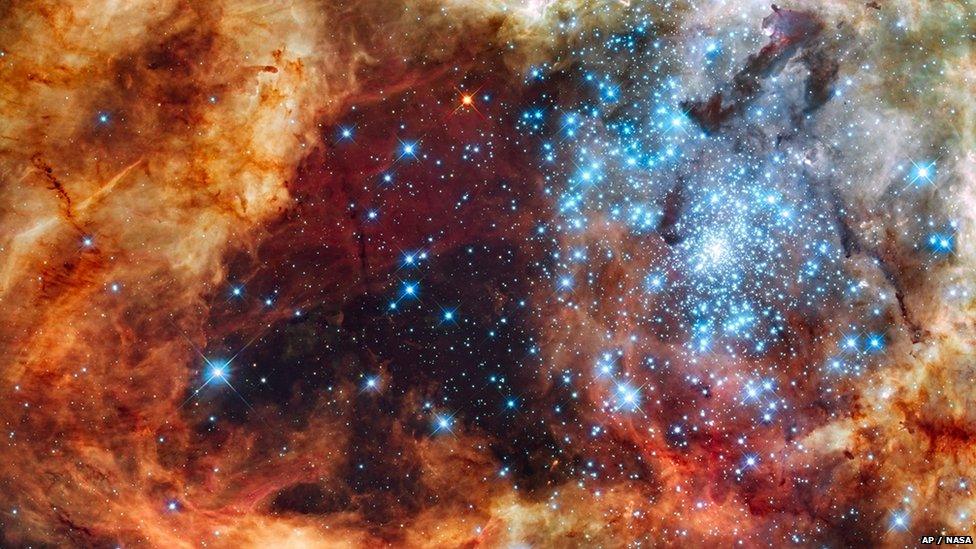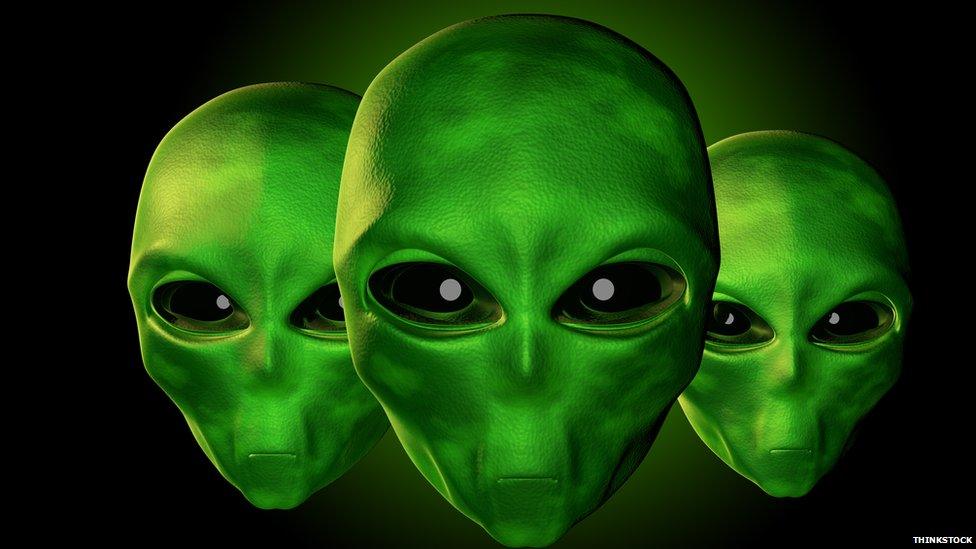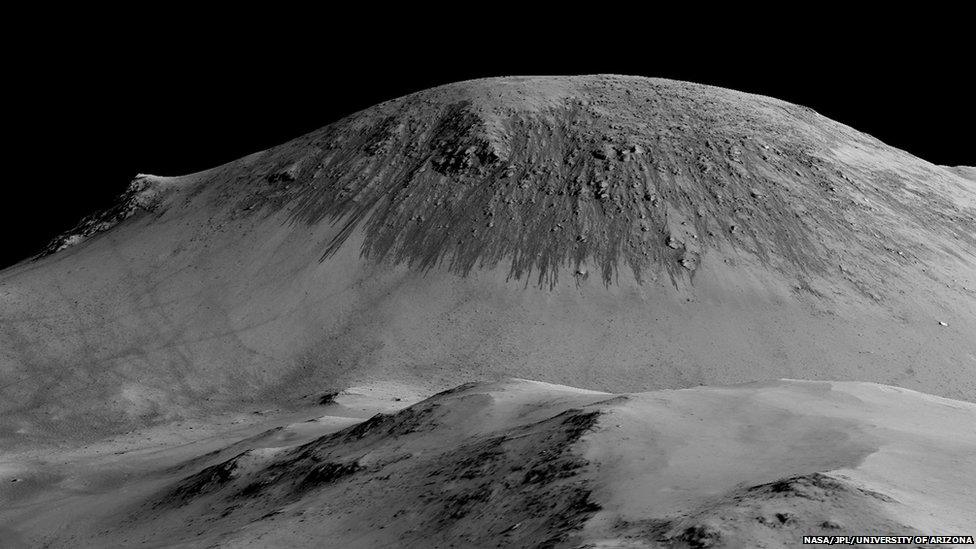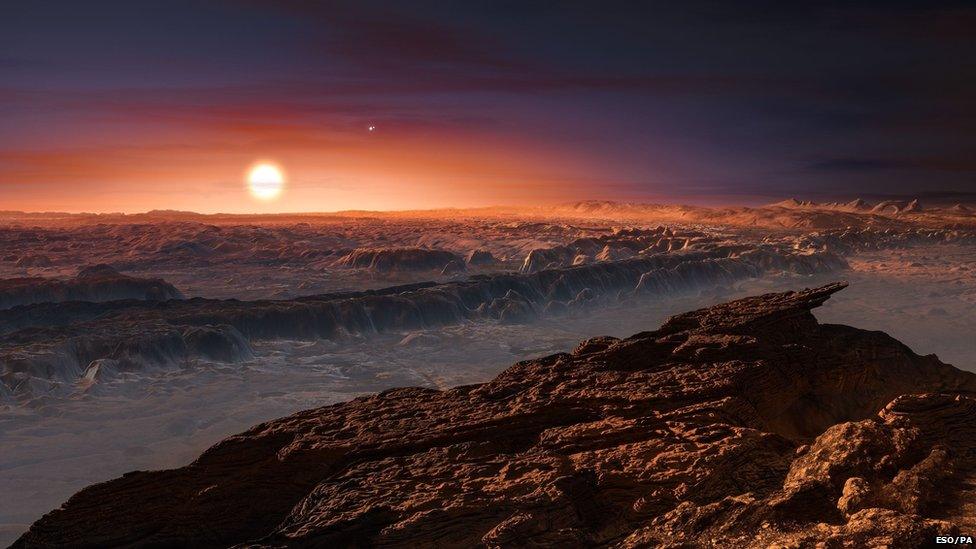What has Nasa discovered 'beyond our solar system'?
- Published

R136 in the 30 Doradus Nebula, from NASA's Hubble space telescope
The US space agency Nasa is getting set to announce a "major" discovery "beyond our solar system".
The event will be streamed live on Nasa's own television station and website at 6pm UK time on Wednesday.
News of the announcement will also be published in the scientific journal Nature and followed shortly after by a Reddit AMA (Ask Me Anything).
So, what are some of the things scientists at Nasa could be getting excited about?
Little green men

Will Nasa's announcement be to do with alien life?
It's the obvious conclusion to leap to, and plenty of you have been getting excited on Twitter.
Hayley says she'll be "well gutted" if it's not an announcement about aliens., external
And "yay for aliens", says Jess., external
But just to steel you, don't be too disappointed if the actual announcement turns out to be something not quite as exciting.
Extra-terrestrial water

Nasa say the presence of water on the surface of Mars is almost certainly responsible for these dark streaks
A key indicator for potential life on other planets is the existence of water.
Back in 2015, Dr Joe Michalski from London's Natural History Museum said, "on Earth, wherever we find water, we find life".
At the time, Nasa were announcing an exciting discovery of surface-level liquid water in so-called "seeps" on Mars.
These seeps were identified as the best place to look on Mars for signs of life, so it could be that water has been discovered on a planet further afield.
However, scientists have also admitted it will be a long time before they are able to investigate the water on Mars more closely.
A global agreement is in place barring spacecraft from parts of the Red Planet that are likely to have water unless they have been thoroughly sterilised, to avoid possible contamination.
A nearby habitable planet

Artists impression of Proximi B, the rocky 'Earth-like' planet orbiting our second nearest star
All Nasa have said in advance of their press conference is that it's about exoplanets, so this one's more of a possibility.
"Exoplanet" is the name given to a world that orbits any star other than our own Sun.
Scientists said last August that the closest star to our solar system has an earth-sized planet in orbit around it, that they have called Proxima B.
Additionally, the rocky globe circling Proxima Centauri moves in a zone that would make liquid water on its surface a possibility.
Just how "habitable" this particular planet really is remains pure speculation.
Proxima is also 40 trillion kilometres away, so using current technology, it would take a spacecraft thousands of years to reach it.
So, the smart money is on this latest announcement being something to do with Proxima B, or another similar earth-like planet.
Find us on Instagram at BBCNewsbeat, external and follow us on Snapchat, search for bbc_newsbeat, external